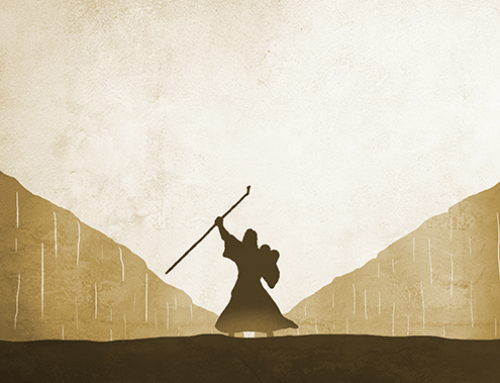app • application
application •
: an act of putting to use
: a program (as a word processor or a spreadsheet) that performs one of the major tasks for which a computer is used
: the act of fixing the mind; intenseness of thought; close study; attention
: that part of the discourse, in which the principles before laid down and illustrated, are applied to practical uses
– ♦ ♦ ♦ –
Just for fun, we’re going to take a ride in the way-back machine and look at some of the inventions that have shaped our lifestyle…

The Gutenberg Printing Press, 1450
In about 1450, Johannes Gutenberg invented the printing press. In it’s time, this was an amazing time and labor saving device! Instead of painstakingly hand copying books, once a page was carved onto a plate, it could be placed in the press and many identical copies could be printed! Amazing! The Bible was the first book to be mass-produced and placed into the hands of the common people. Can you imagine what it was like to actually hold a book in your hands for the first time, ever?
Fast-forward a couple hundred years and the Industrial Revolution was in full swing. The invention of an efficient steam engine revolutionized manufacturing. Manufacturing moved from the homes of artisans into factories. The Second Industrial Revolution or Technical Revolution brought electricity into the factories and mass production became truly possible!
 In the late 1870s, Edison’s invention of the phonograph allowed sound to be recorded and Bell’s invention of the telephone allowed sound to be transmitted over a distance. Can you imagine what changes that brought? Before the phonograph was invented, to hear an orchestra might have been a once-in-a-lifetime event many would never experience! Before the telephone, moving away from your family meant you might never hear their voices again.
In the late 1870s, Edison’s invention of the phonograph allowed sound to be recorded and Bell’s invention of the telephone allowed sound to be transmitted over a distance. Can you imagine what changes that brought? Before the phonograph was invented, to hear an orchestra might have been a once-in-a-lifetime event many would never experience! Before the telephone, moving away from your family meant you might never hear their voices again.
A few years later, Gugliermo Marconi’s invention of the wireless telegraph led to the invention of the radio. Recorded voices and music could now be transmitted great distances, even in places where no wires had been laid! Even across oceans! For many years, listening to the “wireless” meant listening to the radio.
 Soon a new revolution was under way. The Digital Revolution! Transistors, semiconductors and computers came on the scene and we were able to do even more even faster! Large-scale computing machines were being miniaturized and costs continued to decrease. Just as at one time the printing press brought books into the hands of the common people, computing technology soon became available to the general public. What once was a vision of the far-off future, only imagined in science fiction has largely become our everyday experience!
Soon a new revolution was under way. The Digital Revolution! Transistors, semiconductors and computers came on the scene and we were able to do even more even faster! Large-scale computing machines were being miniaturized and costs continued to decrease. Just as at one time the printing press brought books into the hands of the common people, computing technology soon became available to the general public. What once was a vision of the far-off future, only imagined in science fiction has largely become our everyday experience!
Most of us live with instant access to communication. For many, it is hard to imagine living without our cell phones; without being able to make a call or send a text message from just about anywhere at just about any time. We carry our music with us. We carry our digital cameras so we can instantly share the images of our lives with friends and family far away. We are entertained by videos on demand and kept up to date with the latest news (and the latest gossip), all from the convenience of a smart phone, tablet or personal computer.
 If you need something more, chances are, there’s an app for that!
If you need something more, chances are, there’s an app for that!
- Need to total up some bills? There’s an app for that!
- Need to check your bank balance? There’s an app for that!
- Want to look for an apartment in your area? There’s an app for that!
- Are you hungry? Looking for a restaurant? There’s an app for that!
You can probably name a dozen apps you use regularly! And they are right there at your fingertips! Instantly!
But, when you have personal problems, where do you go? Do you search the Internet for advice? Do you post on Facebook or send text messages to all of your friends and ask them what you should do?
When it comes to dealing with life issues, things like: relationships, morality, ethics, making life choices… Where will you find an app for that?
Maybe you are thinking: I’ve got that, too! It’s right here in my Bible app!
Having instant access to your Bible is a great thing! Bible apps are great because they allow you to search and find what you are looking for. But I’m sorry to tell you that unless you have the two “life apps” I want to talk to you about today, even your Bible may not help you much.
I propose that the first “life app” you need is this:
– A Powerful Prayer –
James 5:13 says, “Is any one of you in trouble? He should pray.” He goes on to tell us that the prayer of a righteous man is powerful and effective and gives us the example of Elijah. Elijah prayed and God answered his prayer. There was not a drop of rain on the land for three and a half years because Elijah prayed. Not a drop! After the three and a half years, Elijah prayed again, and it didn’t just rain, it poured!
What is it, do you suppose, that makes a prayer “powerful and effective”? Well, I can tell you a few things that it is not:
- It is not about saying “just the right words”.
Jesus said,
Matt. 6:7 “And when you are praying, do not use meaningless repetition as the Gentiles do, for they suppose that they will be heard for their many words. 8 “So do not be like them; for your Father knows what you need before you ask Him.
Likewise if you read Romans 8:26-27 you will see that:
- It is not about being in the right place. There are benefits to being in a quiet place when we pray, but that is because we are so easily distracted. God is able to hear you equally well from any place that you pray.
- It is not about the position of your body. Yes, there are benefits to bowing your head, to kneeling, to closing your eyes… Because the position of our bodies tends to influence the attitude of our hearts. But you can pray effectively with your eyes open and standing on your feet as well as in a more humble position.
- It is not even about the time of day. Yes, there is something to be said for prayer in the morning, because we have a tendency to live in our own power when we do not begin our day with prayer. Any and every time of day is a good time to pray, in fact the Apostle Paul exhorted us to, “pray without ceasing” (1Th. 5:17).
So, if it is not the words, the place, the position of the body or the time of day that makes prayer powerful and effective, what is it?
Well James gives us two clues. First, he tells us that it is the prayer of a righteous man. As believers in Jesus Christ, our righteousness is not our own. The Apostle John tells us, “if we walk in the Light as [God] Himself is in the Light, we have fellowship with one another, and the blood of Jesus His Son cleanses us from all sin.” (1 John 1:7) As we follow, as we continue to walk in the Light God gives us, the blood of Jesus continues to cleanse us. That is our righteousness. And that righteousness of Jesus Christ is one part, James tells us, of the power behind effective prayer.
James’ mention of Elijah is another clue. When we study the life of Elijah, we find he had a habit of listening for the Lord’s direction and of waiting on the Lord’s timing. In 1 Kings 19, we see an exchange between Elijah and the Lord that reveals a lot about their relationship:
1Kings 19:11 “Go out and stand before me on the mountain,” the LORD told him. And as Elijah stood there, the LORD passed by, and a mighty windstorm hit the mountain. It was such a terrible blast that the rocks were torn loose, but the LORD was not in the wind. After the wind there was an earthquake, but the LORD was not in the earthquake. 12 And after the earthquake there was a fire, but the LORD was not in the fire. And after the fire there was the sound of a gentle whisper. 13 When Elijah heard it, he wrapped his face in his cloak and went out and stood at the entrance of the cave. And a voice said, “What are you doing here, Elijah?” [NLT]
Elijah recognized that God was not in the windstorm or in the earthquake or in the fire. How did he know? Elijah recognized the gentle whisper from the Lord because he had been in the presence of the Lord before. Elijah waited through the windstorm, waited through the earthquake, and waited through the fire until he sensed the presence of the Lord and heard his voice. Then he stepped forth.
You see A Powerful Prayer requires:
– A Personal Presence –
Powerful prayer occurs within the very presence of God. Hebrews 4:14-16 reads:
Heb. 4:14 Therefore, since we have a great high priest who has passed through the heavens, Jesus the Son of God, let us hold fast our confession. 15 For we do not have a high priest who cannot sympathize with our weaknesses, but One who has been tempted in all things as we are, yet without sin. 16 Therefore let us draw near with confidence to the throne of grace, so that we may receive mercy and find grace to help in time of need. [NASB]
We receive the mercy and find the grace to help us in our time of need when we draw near to the throne of grace, when we enter His presence in prayer. And we are able to draw near to the throne of grace because of the righteousness of Jesus Christ.
Technology provides us with some wonderful, useful tools and information. But I wonder whether we have become so used to the instant feedback of our technology that we have forgotten some things.
- I wonder whether we have forgotten how to wait upon the Lord.
- And I wonder whether we have forgotten how to listen for His voice.
When your life is battered by windstorms, do you frantically rush into the storm trying to keep your life from falling down around you? Or do you wait upon the Lord?
When your relationships or your finances or your plans for the future are shaken to pieces, do you frantically search for the best advice to fix them? Or do you turn to Powerful Prayer?
When your dreams and ambitions lie in ashes, what will you do?
The answer to the windstorms and earthquakes and fires in our lives is A Powerful Prayer experienced when we draw near to the Personal Presence of God.
But let’s be honest. When you pray, do you always wait on the Lord’s presence and listen for His voice? I can tell you that I haven’t always done so. Let me share with you some of the reasons why — maybe you have experienced others:
- I am in too much of a hurry to take the time.
- My prayer time is more of a monologue than a dialogue because I am so busy talking to God that I don’t take time to listen to Him.
- I am thinking about doing something else instead.
- I am afraid He will speak, and I don’t think I want to hear what He will say.
- I know that I have been disobedient.
My question to you is this:
- Do you want to experience powerful, effective prayer in your life?
If so, are you willing to do what it takes for that to happen?
- Are you willing to make sure you are in right relationship to God? When God shines His light into your life and illuminates something that hasn’t been surrendered to Him, will you repent? Repentance requires more than agreeing with God about it — that’s confession. Oftentimes, confession is where we stop. We say, “I know I need to do something about that…” but we don’t do it. Repentance requires us to turn around and walk away from it. Remember 1 John says that as long as you are being obedient to the Light God is shining into your life, the blood of Jesus will continually keep you clean in His sight. That right-ness in your relationship with God is necessary for powerful, effective prayer.
- And then, are you willing to wait on the Lord’s presence in prayer? Are you will to set aside the time, set aside your cell phone, even set aside your prayer requests long enough to “be still and know He is God”? Are you willing to close your lips and quiet your heart and listen for His voice speaking to you deep in your spirit?
Close your eyes. Quiet your spirit. Come into His presence in prayer.
Pastor Cindy
[Adapted from a sermon originally preached September 13, 2014]





I love readings/reminders/truthful lessons on prayer! This reminds me, and confirms to me, that Prayer is the Ultimate Weapon. This reminder also reminds me to wait and listen to our Lord, and I need to work more on this area of my prayer life – taking the time to listen to God…
I need to APPly this to my life